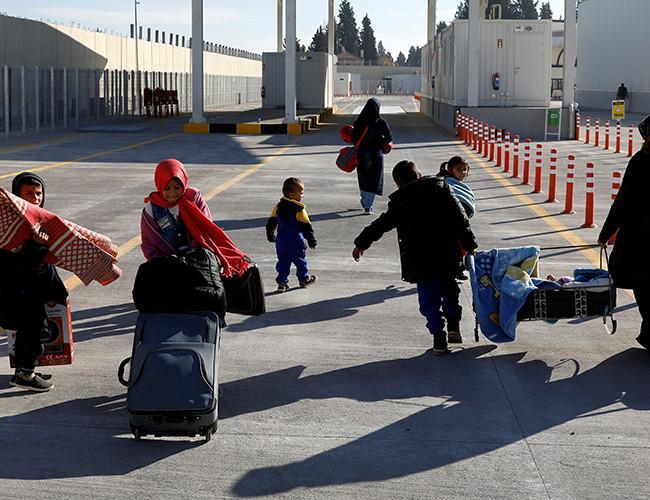
Some 75,000 Syrians have returned to lands liberated from the Islamic State of Iraq and the Levant (ISIL) and the People’s Protection Units (YPG) after operations led by the Turkish army, Prime Minister Binali Yıldırım said on Dec. 15.
“Things are improving in Syria, slowly getting back on track. With the Euphrates Shield Operation we cleared an area of 2,000 square kilometers of ISIL and the PKK [outlawed Kurdistan Workers’ Party],” Yıldırım said at a migration and adaptation symposium in Ankara, referring to the YPG as the PKK as the two groups are linked.
“Some 75,000 of our Syrian brothers have gone back to those areas, settled down, and returned to their normal lives,” he said.
Last year Turkey launched the Euphrates Shield Operation, a military campaign aimed at clearing ISIL and the YPG from the Turkish-Syrian border region.
Millions of Syrians have been displaced and hundreds of thousands of them have lost their lives in the six-year-long war, which began with anti-government protests before escalating into a devastating civil war.
“[The YPG] forces people to join its armed groups. Kurds currently cannot go back to the 20 percent of the Syrian lands controlled by the YPG. We are not against our Kurdish brothers, we stand with them,” Foreign Minister Mevlüt Çavuşoğlu said on Dec. 12, adding that some 300,000 Kurds have escaped to Turkey from the Syrian war.
Turkey currently hosts around 3.2 million Syrians, more than any other country in the world.
“As of December 2017, 976,000 of the Syrians in our country consisted of school-aged children. We give education to 612,000 of them in public schools, temporary education and accommodation centers,” Yıldırım said.
The schooling rate for Syrian children reached 65 percent in the 2017-18 ac academic year from 30 percent in 2016, he added.
Yıldırım noted that some 3.7 million people from 91 different countries live in Turkey under “international protection status.”
“Processes related to humanitarian aid and asylum seekers in the world are now starting to give a red alert,” he said, criticizing the migration policy of European countries for seeing the issue as “a security problem rather than a humanitarian one.”
“All obstruction work, increased border controls, barbed wires, and high walls do not reduce the number of asylum seekers or migrants. On the contrary, these activities encourage and promote irregular migration even more. Unfortunately, as a result many people are drowning in the seas and paying a heavy price,” Yıldırım stated.